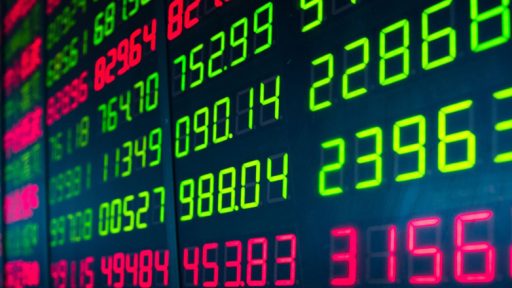- Home
- >
- Stocks Daily Forecasts
- >
- Get ready for dramatically lower stock market returns over the next decade

Get ready for dramatically lower stock market returns over the next decade

Enjoy the stock indexes riding at record highs for now, but get ready for much stingier markets in the years to come.
That's the message consistently conveyed these days by investment counselors and finance scholars, who argue that with today's starting equity valuations and low interest rates, the coming decade should produce dramatically lower returns than the historical average.
The leaders of Vanguard Group, overseers of some $4 trillion in client assets, have been advising investors to expect a typical 60 percent stocks/40 percent bonds portfolio to deliver two- to- three percentage points less in nominal annual returns than its long-term norm. (Since 1926, such an asset mix has returned better than 8.5 percent annualized.)
Other forecasts are even less generous. Research Affiliates, a quantitative and "smart beta" fund manager, projects that U.S. stocks might only offer one percent a year for the next decade, after inflation. This is based largely on the so-called Shiller P/E, a ratio of the S&P 500 index to its trailing ten-year average earnings, which is now above 29 and higher than any period aside from the run-up to the 1929 and 2000 market peaks.
And with risk-free 10-year government debt yielding a skimpy 2.3 percent in the U.S. and far less elsewhere, all other financial assets have repriced for skimpier future returns as well.
The first thing to say about this chorus of sober forecasts is that no one truly knows. Valuations have certainly adjusted into a higher range the past two decades, and if one wants to argue that corporate profit margins can climb higher still from record levels due to technology or whatever other factor, it can't be refuted outright.
The second point to note is that low long-term returns can be arrived at via numerous paths. Stocks can keep galloping higher for the next few years in a late-'90s rerun, and then drop a lot. Current valuations have almost no predictive power over the next one or three years, but only exert their pull beyond half a decade.
We've been told to brace for a "low-return environment" for years now, and still the S&P 500 has delivered nearly 14 percent the past five years. The benchmark at this multiple in a rising-earnings phase, with a 2 percent dividend yield and few imminent recession signals, doesn't seem like a market firetrap one needs to escape this minute. (Or is that assessment itself the trap the consensus has fallen into?)
What is an investor to do, then, in a less fruitful investing future, however it unfolds?
The clear first step would be to save more, if possible. A mistake investors make is to expect the market to do much of one's saving for them. And, interestingly, by adding more savings to a broad portfolio, an investor would, and likely should, be buying more stocks, despite their reduced return expectations.
Celia Dallas, chief investment strategist for pension consultant Cambridge Associates, notes that investors "are still being compensated for taking more risk," even as expected returns have receded across all capital markets. In other words, equities should still net more than bonds and cash.
A final suggestion for investors: Stay open-minded about how markets might behave. Absorb the careful conclusions of the finance math that argues for subdued returns for years to come, be prepared for some bad stretches in there, and allow for pleasant surprise if markets turn out to be more generous than expected.
Source: Bloomberg
Jr Trader Alexander Kumanov
 Varchev Traders
Varchev Traders Read more:
If you think, we can improve that section,
please comment. Your oppinion is imortant for us.











